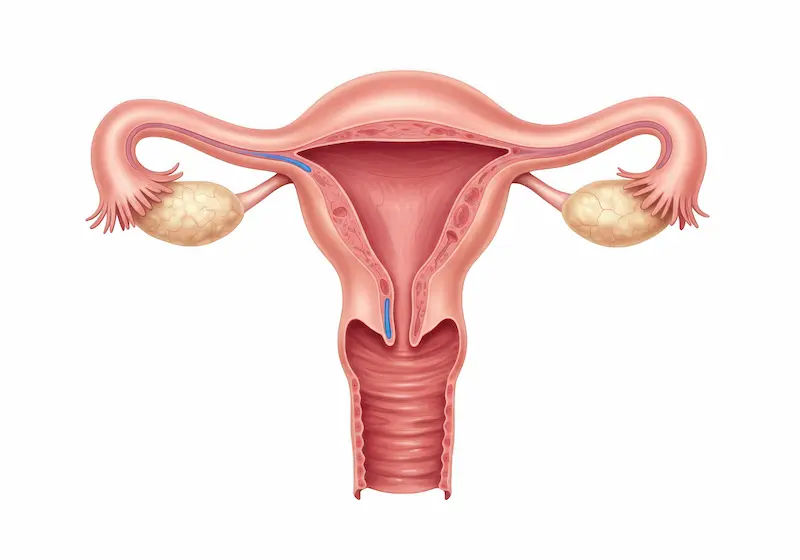Benefits of Vasa
Discover the health benefits of Vasa (Malabar Nut), a powerful herb known for supporting respiratory health, relieving cough, and promoting natural healing in Ayurvedic practices.


Introduction
Respiratory health is essential for overall well-being, and nature offers many remedies to support it. One such powerful herb is Vasa (Adhatoda vasica), widely used in Ayurveda for its incredible benefits in managing respiratory conditions. If you or a loved one struggles with coughs, colds, or breathing difficulties, Vasa might be a natural solution worth exploring.
What is Vasa?
Vasa, also known as Malabar nut, is a medicinal plant native to India and Southeast Asia. Its leaves, roots, and flowers have been used for centuries in traditional medicine to treat respiratory ailments. The herb contains active compounds like vasicine and vasicinone, which help in clearing mucus, reducing inflammation, and improving lung function.
Key Health Benefits of Vasa
Some of the key health benefits of Vasa are:
1. Relieves Cough and Cold: Vasa is highly effective in managing dry and wet coughs. It acts as an expectorant, helping to loosen and expel mucus from the respiratory tract. If you suffer from persistent cough due to cold, allergies, or infections, Vasa can provide relief.
2. Supports Asthma and Bronchitis: For people with asthma or chronic bronchitis, Vasa helps by:
Opening up airways for easier breathing.
Reducing inflammation in the bronchial tubes.
Preventing excessive mucus production, which can block breathing passages.
3. Boosts Immunity: Vasa has antimicrobial and anti-inflammatory properties that help fight infections. Regular use (as advised by a healthcare provider) may strengthen immunity against seasonal respiratory illnesses.
4. Soothes Sore Throat: Its natural cooling and anti-inflammatory effects help reduce throat irritation and hoarseness caused by excessive coughing or infections.
5. Aids in Tuberculosis (TB) Management: In Ayurveda, Vasa is often used as a supportive therapy for tuberculosis due to its ability to strengthen the lungs and reduce cough.
Consult Top Ayurvedic Practitioner
How to Use Vasa for Respiratory Health?
Vasa can be consumed in different forms, including:
1. Vasa Tea or Decoction
Boil 5-6 fresh or dried Vasa leaves in water for 10 minutes.
Strain and drink warm (can add honey for taste).
Helps in relieving cough and congestion.
2. Vasa Powder (Churna)
Mix ½ teaspoon of Vasa powder with honey or warm water.
Take twice a day (after consulting a doctor).
3. Vasa Syrup: Commercially available Vasa-based syrups (like Vasavaleha) can be taken as per dosage instructions.
4. Steam Inhalation: Boil Vasa leaves in water and inhale the steam to clear nasal and chest congestion.
Precautions and Side Effects
While Vasa is generally safe, excessive use may cause:
Nausea or vomiting (if taken in high doses).
Dizziness or dry mouth (rare).
Not recommended for pregnant women without medical advice.
Always consult a doctor or healthcare provider before starting any herbal remedy, especially if you are on medications.
Lifestyle Tips for Better Respiratory Health
Along with Vasa, these habits can help maintain healthy lungs:
Stay Hydrated: Drink warm water to keep mucus thin.
Avoid Smoking & Pollution: Protects lungs from damage.
Practice Breathing Exercises: Yoga (Pranayama) improves lung capacity.
Eat a Balanced Diet: Include ginger, turmeric, and honey for natural immunity.
When to See a Doctor?
While Vasa is helpful, seek medical attention if you experience:
Severe breathing difficulty
High fever with cough
Blood in mucus
Persistent symptoms beyond 2 weeks
Conclusion
Vasa, or Malabar Nut, stands out as a time-tested herbal remedy in traditional medicine, especially valued for its powerful effects on respiratory health. Whether used to ease chronic coughs, soothe asthma symptoms, or support overall lung function, this versatile plant offers a natural path to wellness. Its anti-inflammatory, antimicrobial, and expectorant properties make it a reliable ally in maintaining respiratory and general health. As with any herbal supplement, it’s wise to consult a healthcare provider before adding Vasa to your routine, especially if you have underlying health conditions or are taking other medications. Embracing Vasa as part of a balanced, holistic approach to health may offer lasting benefits for those seeking natural solutions.
Consult Top Ayurvedic Practitioner
Consult Top Ayurvedic Practitioner

Dr. Khanisri Singapanga
Ayurveda Practitioner
14 Years • BAMS, MD Ayurveda
Hyderabad
AyushNidhi Ayurvedic Hospital Panchakarma - Piles -Infertility Center, Hyderabad
(50+ Patients)

Dr. Konegari Loka Sai Kiriti
Ayurveda Practitioner
8 Years • BAMS, MD(Kayachikitsa)
Visakhapatnam
Apollo 24|7 Clinic - Andhra Pradesh, Visakhapatnam

Dr. Vinay Bansal
Ayurveda Practitioner
28 Years • BAMS, MD(AM)
Ajit Singh Nagar
Chronic disease treatment with Ayurveda Panchkarma, Ajit Singh Nagar

Dr. Chandan Kumar Yadav
Ayurveda Practitioner
8 Years • BAMS
West Bengal
sriveda, West Bengal

Dr. Sasanka Chowdhury
Ayurveda Practitioner
13 Years • BAMS
Kolkata
Sriveda, Kolkata
Consult Top Ayurvedic Practitioner

Dr. Khanisri Singapanga
Ayurveda Practitioner
14 Years • BAMS, MD Ayurveda
Hyderabad
AyushNidhi Ayurvedic Hospital Panchakarma - Piles -Infertility Center, Hyderabad
(50+ Patients)

Dr. Konegari Loka Sai Kiriti
Ayurveda Practitioner
8 Years • BAMS, MD(Kayachikitsa)
Visakhapatnam
Apollo 24|7 Clinic - Andhra Pradesh, Visakhapatnam

Dr. Vinay Bansal
Ayurveda Practitioner
28 Years • BAMS, MD(AM)
Ajit Singh Nagar
Chronic disease treatment with Ayurveda Panchkarma, Ajit Singh Nagar

Dr. Chandan Kumar Yadav
Ayurveda Practitioner
8 Years • BAMS
West Bengal
sriveda, West Bengal

Dr. Sasanka Chowdhury
Ayurveda Practitioner
13 Years • BAMS
Kolkata
Sriveda, Kolkata




